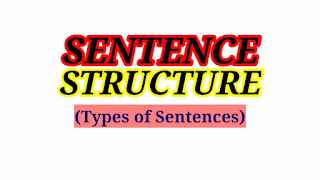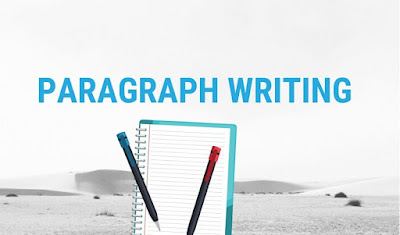Adjective
ADJECTIVE
The adjective is a word that qualifies a noun and adds to its meanings. It is usually used before a noun and identifies its distinctive features; as:
Ahmed is an intelligent boy.
He delivered impressive speech.
We like cool air in summer.
In these sentences intelligent, impressive, and cool are Adjectives which add to the meanings of the nouns i.e. boy, speech, and air respectively.
KINDS OF ADJECTIVES
1- ADJECTIVES OF QUALITY
They denote the quality or state of a person or a thing to which they refer, as:
Lahore is the cultural centre of Pakistan.
Kaghan is the most beautiful valley of Pakistan.
The clever fox tried to get a piece of cake from the crow.
2. ADJECTIVES OF QUANTITY
They denote the quantity of things qualified by them, they are used with uncountable nouns.
He has little money.
You should take great care of your health and wealth.
He spends some money on his dress.
Our soldiers showed much courage.
A wise man never spends all his money.
Pakistan has enough natural resources.
We did not have sufficient rain last year.
3. ADJECTIVES OF NUMBER/NUMERAL ADJECTIVES
They show how many persons or things are meant, or in what order a person stand. They are divided into three kinds:
(i) Definite Numeral Adjectives
They denote an exact number of persons or things:
(a) Cardinals:
To kill two birds with one stone.
I have fifty rupees in my pocket.
There are seven parrots in the cage.
(b) Ordinals:
Things in a series; as
I have completed fifty chapter.
He was standing in the first row.
The third boy was absent.
(ii) Indefinite Numeral Adjective
They do not denote exact number of persons or things, as----
Many boys were playing in the ground.
I have read several books on lqbal.
A few students were sitting in the hall.
He spent some money.
(iii) Distributive Numeral Adjectives
They denote which person or thing is taken out singly, as----
Each student should attend the class in uniform.
Every man must do his duty honestly.
Trees were growing on either side of the canal.
Neither file was sent.
4. DEMONSTRATIVE ADJECTIVES
They are used to indicate what person, place, things are meant, as:
This house is more spacious than that.
These apples are sweeter than those.
I like such persons as are sincere.
These terrorists must be brought to justice.
5. INTERROGATIVE ADJECTIVES
Interrogative adjectives are used to ask questions, they are what which and whose.
What nature of woman is she?
Which path shall they follow?
Whose pen is this?
EXERCISE:
Point out the adjective in the following sentences. Also state to which class each of them belongs:
1. He won the first prize.
2. The Swat Valley famous for its charming scenes.
3. Lahore is known for its historical buildings.
4. Pakistan is an atomic power.
5. The thirst crow flew in search of water
6. Iran has aggressive design against Turkey.
7. You should give up bad habits.
8. The flowers give out sweet smell.
9. Each boy must have his own book.
10. I advised him several times.
11. There are buildings on either side of street canals.
12. Whose book is this?
13. A few boys were present in the class.
14. Pakistan is an agricultural country.
15. He spent the little money he had.
16. "Aesop's Fables" is an interesting book.
17. We shall make all our efforts to improve our economy.
18. There are seven days in a week.
19. Empty vessels make much noise.
20. A burnt child dreads the fire.
COMPARISON OF ADJECTIVES
Adjectives have three degrees of comparison, as__
1. The Positive Degree
2. The Comparative Degree
3. The Superlative Degree
1. The Positive Degree
The positive degree is simple form of an adjective used to show the quality of a noun without stating how much of this quality this has, as
Ahmed is tall boy.
2. The Comparative Degree
The Comparative degree is used to show a higher or lower quality of a noun. It is used when two persons or two things are compared. It must be followed by conjunction 'than, as----
Ahmed is taller than that boy. (is)
The climate of Fort Abbas is hotter than that of Islamabad.
She is more responsible than her sister.
Gull-e-lala is more beautiful than any other flower.
3. The Superlative Degree
The superlative degree is used to show the comparing of more than two persons or things; as
The Indus is the largest of all the rivers in Pakistan.
Twenty first December is the shortest day of the year.
An atom is the most destructive of all the weapon.
How to use Comparative Degree:
(a) When we use an Adjective in the Comparative Degree, the persons or adjectives compared are joined by the conjunction ‘than, as
Ali is taller than his brother.
Najma is wiser than her sister.
(b) When selection is meant, the comparative degree is followed by 'of' and 'the' is placed before comparative; as
His is the cleverer of the two
(c) When two qualities of a person are compared, the comparative degree is formed by adding more to positive; as
Ali is more wise than clever.
(d) Adjectives ending 'ior' must be followed by preposition `to'; as
Mr. Ahmed is senior to his colleague.
He is junior to Mr. Ahmed.
Canvas bags are inferior to leather bags.
This pen is superior to yours.
(e) When we want to intensify the degree of comparison, we, sometimes use 'far'; or 'much' with the comparative; as
He is far cleverer than his brother.
The climate of Murree is much cooler than that of Islamabad.
How to use Superlative Degree:
(a) When an Adjective in the superlative degree is used, article 'the' is placed before it; as
Sibbi is one of the hottest cities in Pakistan.
(b) Sometimes, we use 'most' to indicate the quality in a person or thin without any idea of comparison;
It was a most plausible explanation.
This is a most inhuman attitude.






Comments
Post a Comment